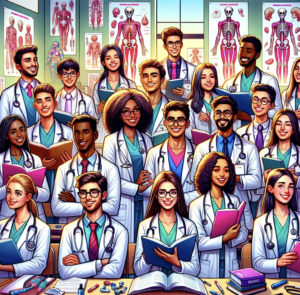
In nearly 20 years of helping people get into their dream schools, I’ve made a point of working with clients to create essays that are both engaging and substantive. This balance is the key to a great essay for graduate or professional school. But, somewhere along the line, people got it in their heads that the only purpose of a personal statement was to let the reader get to know them. This is a mistake.
Over and over, I will read a personal statement for medical school or law school in which the author will tell a story that is highly personal to them, but in which they fail to link that story to their application’s core strengths and themes. When I try to explain that they need to focus on things germane to their application, they will tell me that they want to let the reader know who they are, as if this is a sufficient explanation for a medical school essay that focuses almost exclusively on their love of triathlons or a law school essay that does not ever use the word “law.”
Why does this happen? Essentially, it happens because people get so fixated on writing an *interesting* essay that makes the applicant sound *unique.* I hear these words –interesting and unique- all the time, and while they are important goals, and they will help an essay if used properly, they are a means to an end and not the end itself. The end, the purpose, and your primary motivation in a personal statement are simple: convince the reader that you are prepared and qualified for admission.
Given this, as you write your personal statement, you should keep in mind a simple and well-worn maxim that every salesman has heard a million times: Always Be Closing (ABC). In other words, at every point in the essay, you need to keep in mind whether or not what you are saying is moving the reader closer to believing that you have the requisite knowledge, experience, and understanding of the field you hope to enter.
For every story, for every paragraph, and for every sentence, you do need to ask yourself, “What does this say about the strength of my candidacy?” If the best that you can come up with that it says something interesting or unique about you, it doesn’t pass the ABC test. On the other hand, if it shows that you have an important and germane skill or perspective, then it passes the ABC test.
Now, what I am NOT saying is to be boring or rote, or to provide a straightforward rendering of your CV in essay form. If there is some aspect of your personality that is meaningful to you, then take the extra time to think about how it aligns with your application. For instance, if you’re a triathlete applying to medical school, can you create an overarching frame or metaphor and use the three phases of a triathlon to discuss the three pillars of your preparation for medical school? Or perhaps you’ve learned things from preparation and training that are germane? Did the discipline you found in the pool, track, and open road give you a framework for thinking about challenges? In other words, a great story is wonderful… so long as you connect it to what you’re doing and who you aspire to become.
The story is your way in, but it’s not the sale. Make them interested, then make the sale. Always be closing.
For more tips on how to build a story that moves the reader AND improves your application, check out these two videos we did:
And
For more help with your personal statement, check us out at Gurufi.com. Our personal statement editors and consultants have decades of experience helping clients get into top Masters and Ph.D. programs in STEM, humanities, fine arts, and social sciences. Our specialty is helping you craft compelling personal statements that move the needle in your admissions process! For questions, shoot us an email at service@gurufi.com. Check us out on Facebook, Twitter, and LinkedIn.

